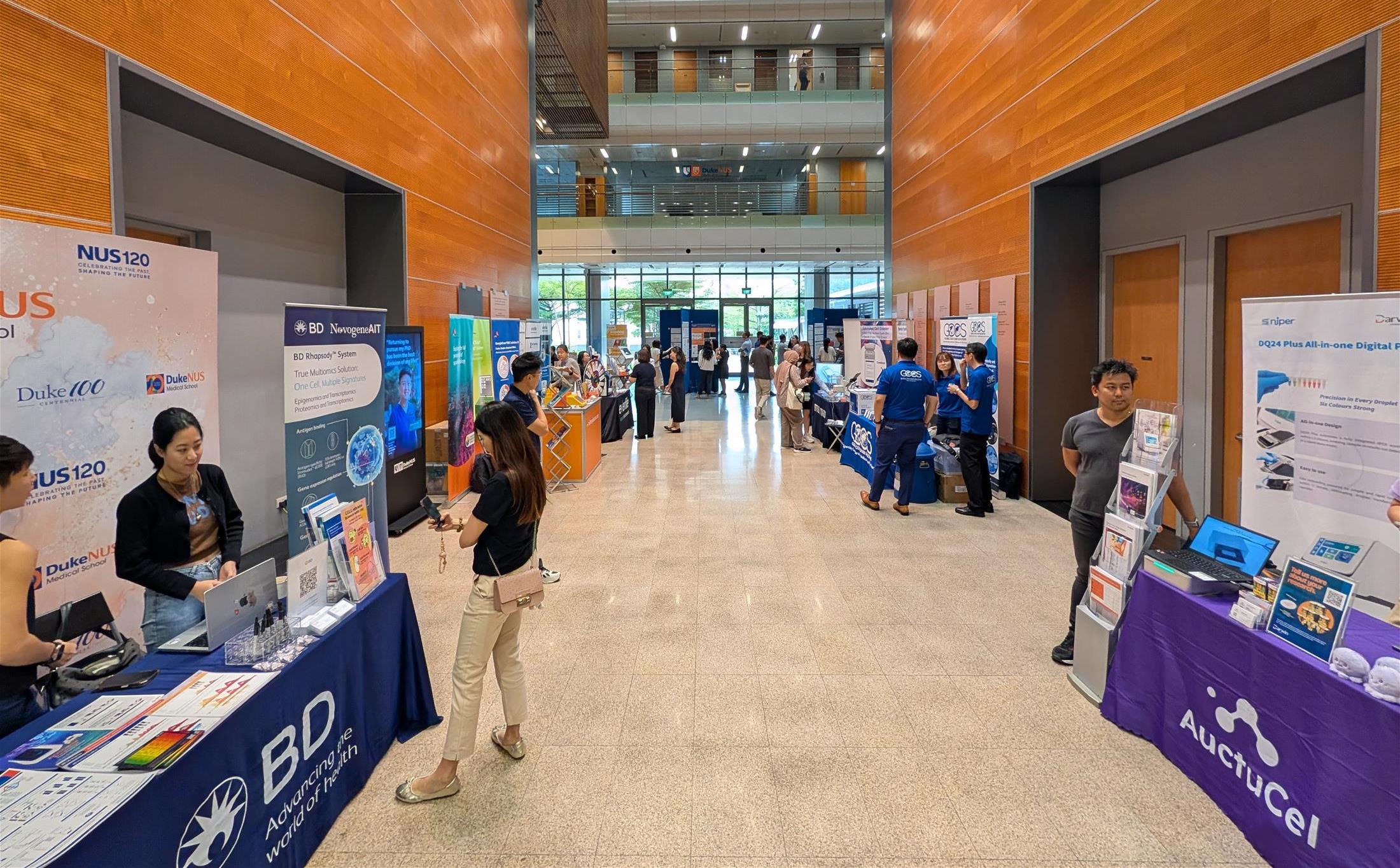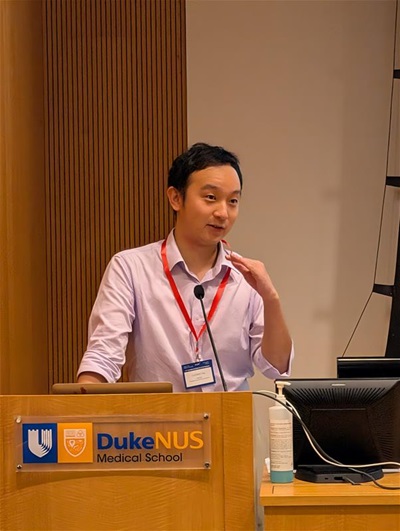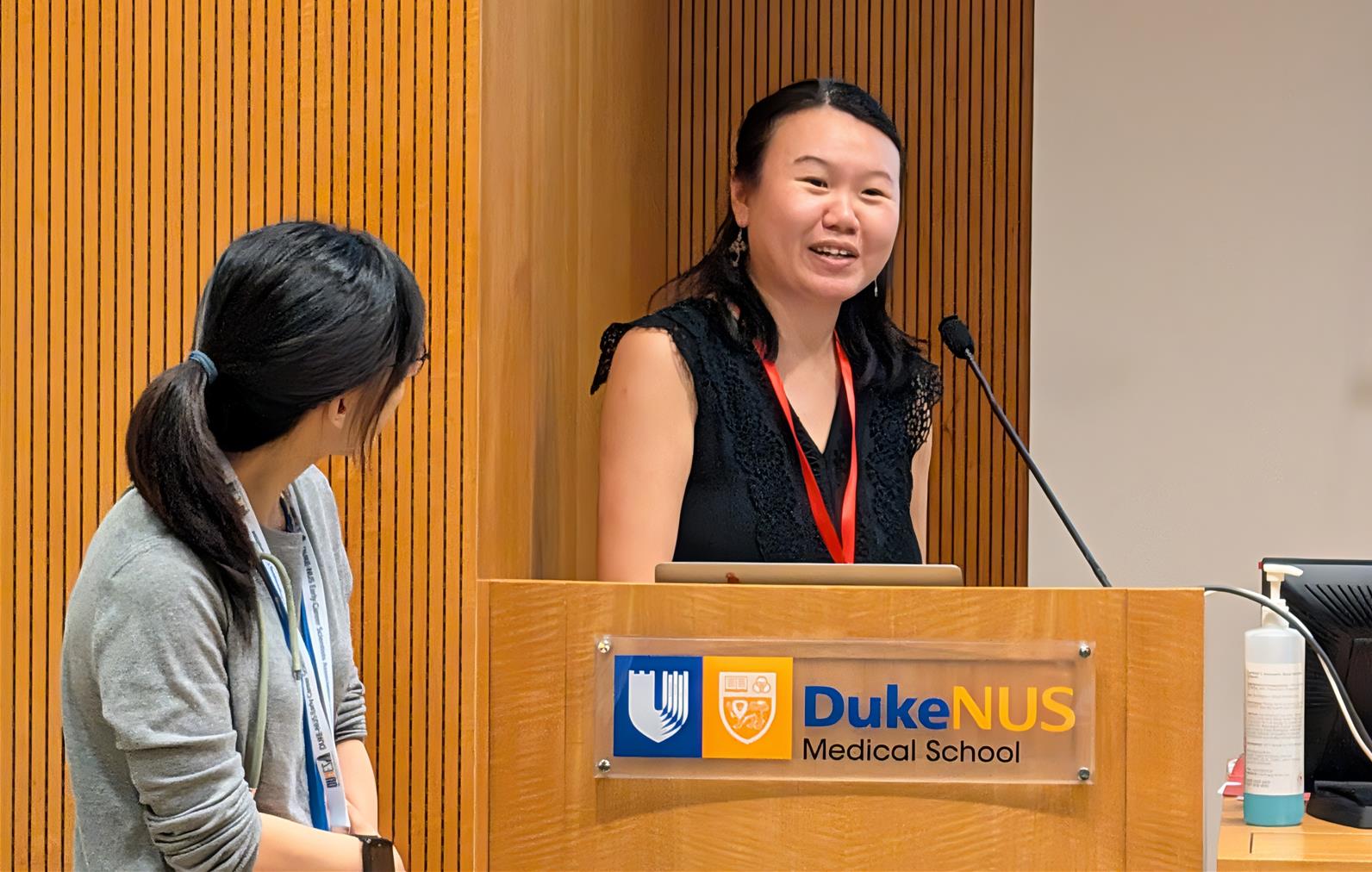Does a PhD in medicine or science limit one to a career in research? How does a person forge a career in science that does not confine them to the lab?
The Duke-NUS Early Career Scientist Association (DUNES) was established to help early career scientists to learn more about professional development, share their work, and build connections with their peers and industry mentors, putting them in a strong position to pursue fulfilling careers in medicine and science. With a blend of workshops, mentorship and peer learning, DUNES has become a trusted platform for growth.

Held at the Duke-NUS Amphitheatre, the symposium gave early career scientists ample opportunity to connect with mentors and peers.

The importance of understanding one’s transferrable skills was a key theme in Dr Clement Yau’s talk.
At the 17
th DUNES Symposium held on 19 November, Professor
Wang Hongyan, Acting Programme Director for the Duke-NUS
Neuroscience & Behavioural Disorders Research Programme, greeted attendees in her welcome address and described the event as a celebration of pre- and post-doctoral scholarship, facilitating the exchange of ideas as these junior scientists chart their next steps. With a full programme of career talks, scientific presentations and networking, the symposium proved rewarding.
Taking the leap
In the morning, the spotlight was on career pivots and pathways, as two speakers shared insights on their journeys.
A Duke-NUS alumnus, Dr Clement Yau recounted two major career pivots after completing his PhD. Now Vice President of Investment at the Temasek Life Sciences Accelerator, he first spent three years at IQVIA after deciding to focus on a career outside of research. Discussing his learnings and challenges, Yau talked about how his evolving understanding of his career path led him to making his first pivot into consulting, before his shifting aspirations made him take the leap into his current role. He stressed how vital it is to take the learnings from each stop along the way, and the importance of transferrable skills such as communications.
Dr Chua Li Min, Senior Media & Content Specialist in the Duke-NUS Communications & Strategic Relations team, shared three key insights from her career journey, pivoting from forensic scientist to science writer after completing her PhD. She encouraged the audience to protect their curiosity and to explore. As they build their network, research career opportunities and find resources that will help them achieve their aspirations, it is crucial to discover their sense of purpose—and then to take the leap and to embrace a level of risk, so as to find what they are truly looking for.

Dr Chua Li Min emphasised the need to find a sense of purpose before taking the leap.
Both speakers highlighted the diversity of career pathways available to students and postdoctoral fellows, but also emphasised the importance of recognising one’s passion and purpose, and to venture out of one’s comfort zone into unfamiliar territory.
Assistant Professor Sarada Bulchand from the Department of Education Advancement and Graduate Studies Office spoke about career-oriented thinking that focuses on being attuned to one’s shifting priorities and motivations and to recognise new opportunities to grow. She also emphasised the importance of transferable skills. In her talk, Bulchand also spoke about the Centre for Career Readiness. The Centre complements DUNES by supporting the professional growth of students and early career researchers through initiatives such as Teaching Scholars and Peer Coaching, giving emerging scientists access to resources and guidance to fulfill their potential.
Connecting through science
In the afternoon, participants delivered oral presentations spanning obesity and population health to dengue and immunology. Together with the poster sessions, these segments created multiple touchpoints for share their research and engage with mentors and peers.
Keynote speaker Professor Çagla Eroğlu, Chancellor’s Distinguished Professor of Cell Biology at Duke University, reflected on her own pivot from engineering to neurobiology, and shared insights from her fascinating work into glia cells and astrocytes.
Poster presentations ran alongside the programme, giving junior researchers a platform to showcase their work
Nicole Lee (left) receiving her prize from keynote speaker Professor Cagla Eroglu.
Rounding off proceedings, the prize presentation saw Gao Yang, Nicole Lee and Shiwei Chen win in the Best Oral Presentation category; while Anagh Kulkarni, Qiao Zheng and Ufuk Degirmenci were recognised for Best Poster Presentation.
This 17th edition showed how DUNES keeps a close watch on the evolving landscape, exploring the breadth of opportunities across the complex ecosystem of medicine. The conversations, connections and community fostered here are invaluable as early career researchers navigate new phases and callings. DUNES remains an instrumental platform in supporting our students and postdoctoral fellows, attesting to the strength of the Duke-NUS community and our culture of mentorship.
All photos in this story are copyrighted to Duke-NUS Medical School.